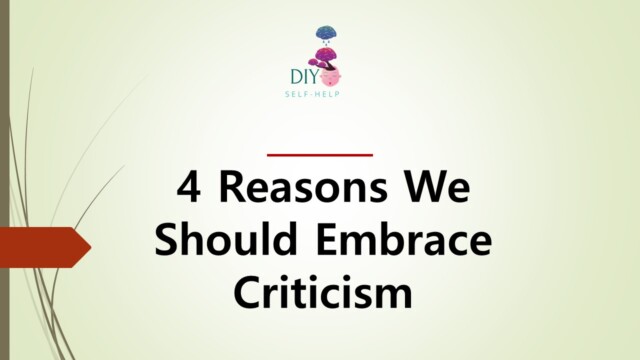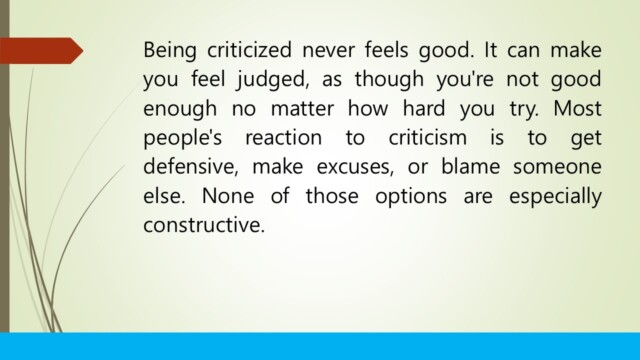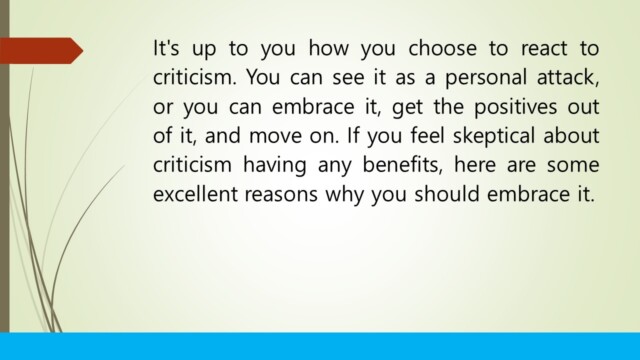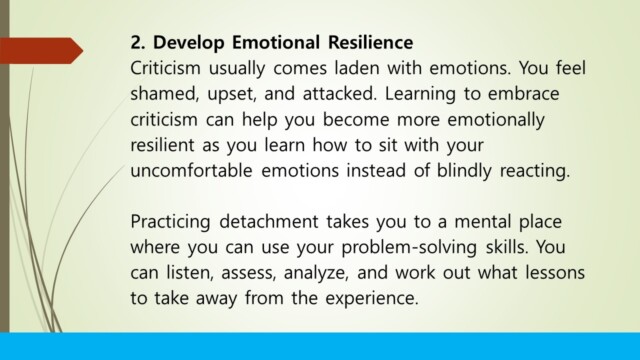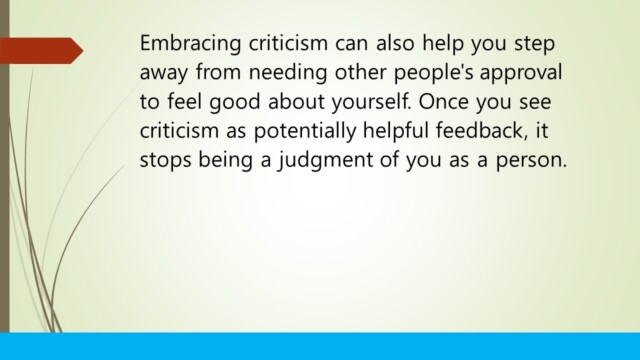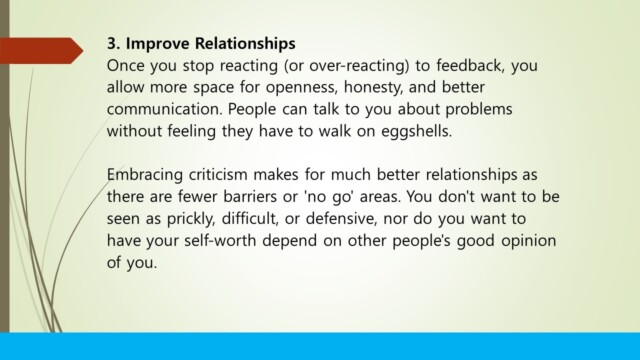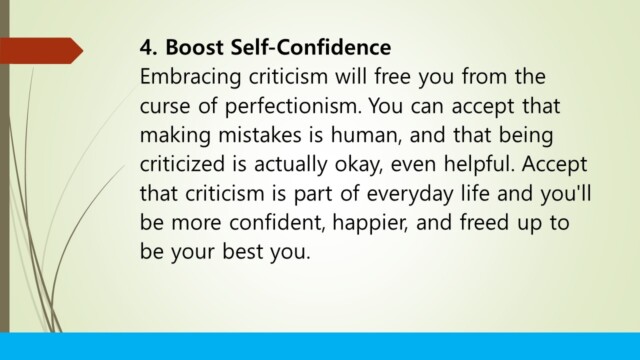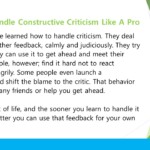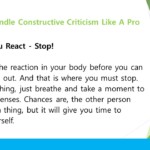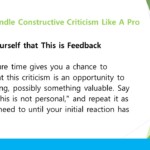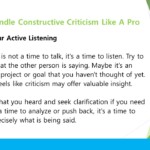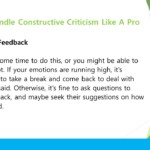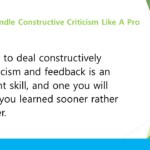How to Handle Criticism
4 Reasons We Should Embrace Criticism
Being criticized never feels good. It can make you feel judged, as though you’re not good enough no matter how hard you try. Most people’s reaction to criticism is to get defensive, make excuses, or blame someone else. None of those options are incredibly constructive.
It’s up to you how you choose to react to criticism. You can see it as a personal attack, or you can embrace it, get the positives out of it, and move on. If you feel skeptical about criticism having any benefits, here are some excellent reasons why you should embrace it.
Use Criticism for Personal Growth
Often, criticism has more than a grain of truth in, even if it’s delivered a bit harshly. That’s partly why it makes you uncomfortable—deep down, it rings true, even if you don’t want to admit it.
Think of criticism as another element in your personal development toolbox, one that offers insight you might otherwise miss. If nothing else, observing and managing how you react to criticism can shine a spotlight on your triggers, your unconscious reactions, and assumptions.
Develop Emotional Resilience

Criticism usually comes laden with emotions. You feel shame, upset, and attacked. Learning to embrace criticism can help you become more emotionally resilient. You know how to sit with your uncomfortable emotions instead of blindly reacting.
Practicing detachment takes you to a mental place where you can use your problem-solving skills. You can listen, assess, analyze, and work out what lessons to take away from experience.
Embracing criticism can also help you step away from needing other people’s approval to feel good about yourself. Once you see criticism as potentially helpful feedback, it stops being a judgment of you as a person.
Improve Relationships
Once you stop reacting (or over-reacting) to feedback, you allow more space for openness, honesty, and better communication. People can talk to you about problems without feeling they have to walk on eggshells.
Embracing criticism makes for much better relationships as there are fewer barriers or ‘no go’ areas. You don’t want to be seen as prickly, complicated, or defensive, nor do you want to have your self-worth depend on other people’s good opinion of you.
Boost Self-Confidence
Embracing criticism will free you from the curse of perfectionism. You can accept that making mistakes is human and that being criticized is actually okay, even helpful. Accept that criticism is part of everyday life, and you’ll be more confident, happier, and freed up to be your best you.
5 Steps to Handle Constructive Criticism Like A Pro
Wise people have learned how to handle criticism. They deal with it like any other feedback, calmly and judiciously. They try and see how they can use it to get ahead and meet their goals. Many people, however, find it hard not to react defensively or angrily. Some people even launch a counterattack and shift the blame to the critic. That behavior doesn’t win you any friends or help you get ahead.
Criticism is a fact of life, and the sooner you learn to handle it positively, the better you can use that feedback for your own success.
Before you React – Stop!
You will feel the reaction in your body before you can get the words out. And that is where you must stop. Don’t do anything; breathe, and take a moment to calm your defenses. Chances are, the other person won’t notice a thing, but it will give you time to compose yourself.
Remind Yourself that This is Feedback

Your composure time gives you a chance to remember that this criticism is an opportunity to learn something, possibly something valuable. Say to yourself, “This is not personal,” and repeat it as often as you need to until your initial reaction has passed.
Practice Your Active Listening
Feedback time is not a time to talk; it’s a time to listen. Try to understand what the other person is saying. Maybe it’s an aspect of your project or goal that you haven’t thought of yet. What initially feels like criticism may offer valuable insight.
Repeat back what you heard and seek clarification if you need to. This is not a time to analyze or push back; it’s a time to understand precisely what is being said.
Thank Your Critic
Even if it makes you cringe inside, say thank you for the feedback. You don’t have to agree with what they’ve said to be sincerely appreciative of the input. After all, they took the time to say what they thought and give you some advice.
Process the Feedback
You may need some time to do this, or you might be able to do it on the spot. If your emotions are running high, it’s probably better to take a break and come back to deal with what has been said. Otherwise, it’s fair to ask questions to clarify the feedback and maybe seek suggestions on moving forward.
Learning to deal constructively with criticism and feedback is an important skill and one you will be glad you learned sooner rather than later.


